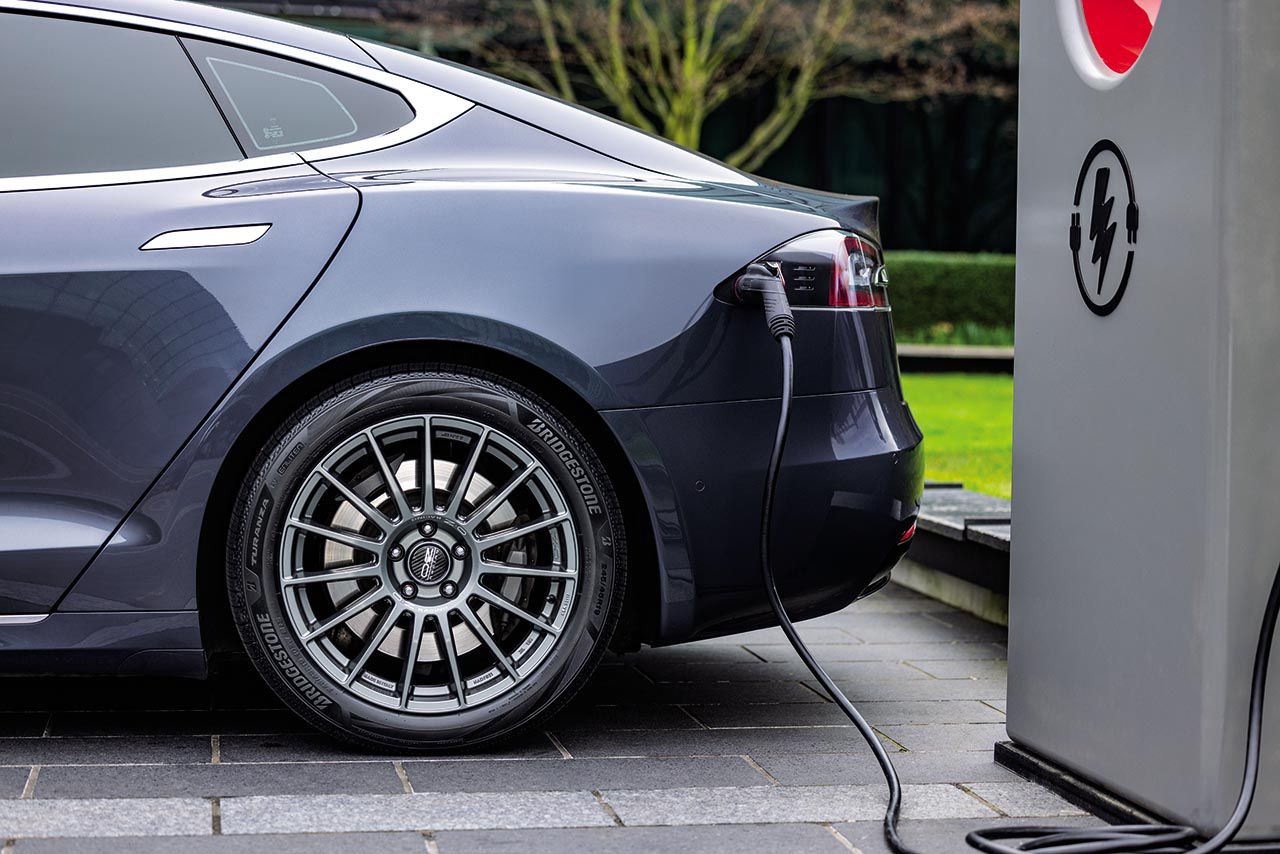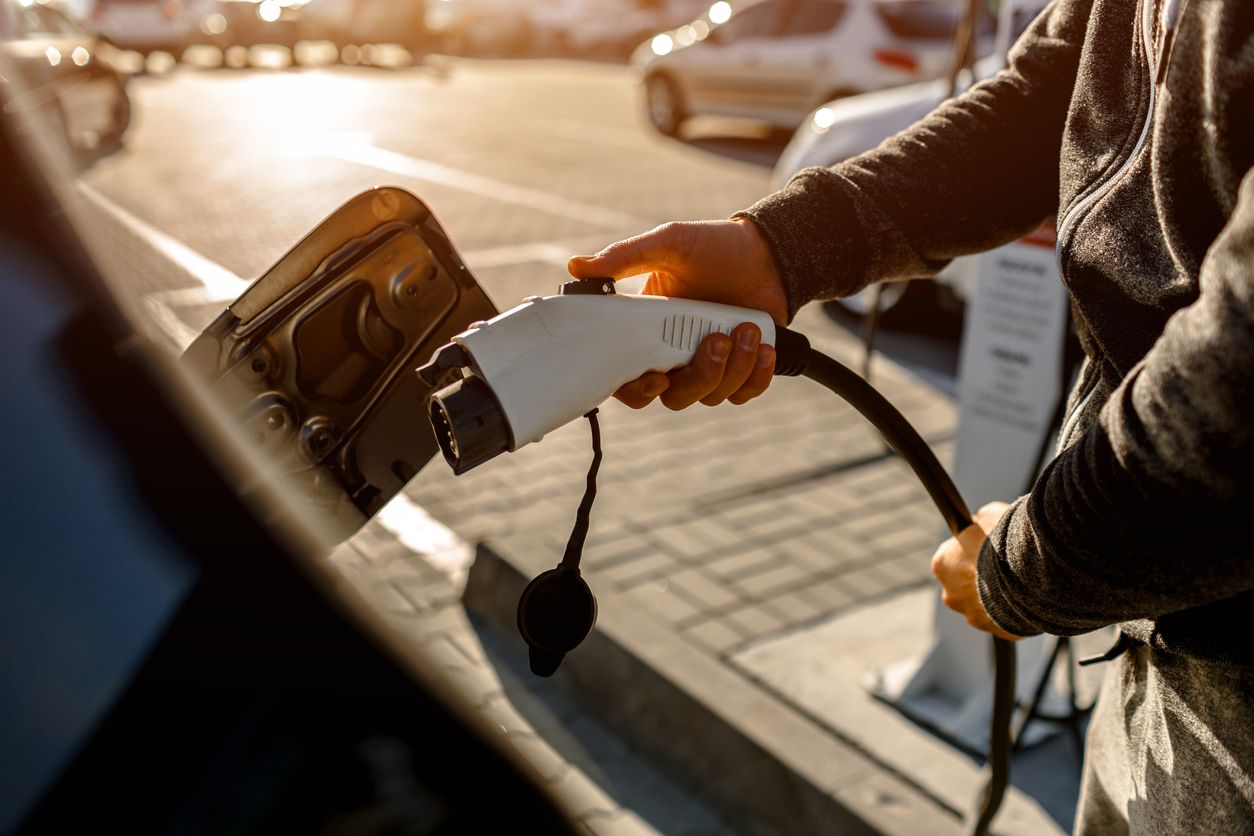Driving an electric vehicle (EV) can help reduce your environmental impact. However, choosing the right tires for an EV can affect its efficiency and sustainability potential. Read on to learn the key differences between electric car tires and ICE tires and why choosing EV-specific options may provide better range, tire life, and overall driving comfort.
EV Tires vs. Regular Tires - Benefits of EV-Specific Tires
EV tires and tires designed for internal combustion engine (ICE) vehicles often have different features. While you may be able to use regular tires on an electric vehicle, you're less likely to achieve maximum performance, range, and tire longevity.
Tires designed or optimized for EVs are typically engineered to sustain additional weight, dynamic loading, and different traction demands. Most importantly, EV tires typically provide lower rolling resistance, which is crucial for maximizing battery range. Most tires intended for ICE vehicles would reduce your mileage, wear prematurely, and cause too much noise.
How To Choose The Best Electric Car Tire For Your Needs
Once your OEM tires wear out, you're likely left with two choices — EV-specific tires or a standard set. But keep in mind that tires designed for EVs often tick more boxes than just standard load, speed, pressure, and size features. Here's what to look for when browsing EV tires for sale.
1. Look for Low Rolling Resistance Tires
The best tires for electric vehicles are designed to have reduced rolling resistance. This feature can positively affect your EV's range. When driving your car, it must overcome the friction and resistance of the tires over the road. Tires that rotate easily over terrain require less energy for movement, which means more energy for achieving longer driving ranges.
Rolling resistance is also considered on ICE vehicle tires, but EV tire manufacturers often place extra focus on this feature. For example, Bridgestone Turanza EV tires are specifically designed to optimize driving range while complementing the unique dynamics of EVs. Bridgestone's ENLITEN Technology enables low rolling resistance, which allows you to drive longer, reduce energy waste, and ensure that every kilowatt of energy used to charge your vehicle goes to better use.
2. Prioritize Load Index
The second most critical metric of electric vehicle tires is load index. EVs are generally heavier than their ICE counterparts due to battery weight. For example, the ICE Mercedes-Benz S500 4Matic Sedan weighs 4,740 lbs, while a similar electric version EQS 450+ Sedan weighs 5,597 lbs. That's almost a thousand-pound difference, which requires very different tire engineering.
EV’s increased weight means longer braking distance and faster tire wear. The added weight requires higher tire performance, especially when braking, cornering, and accelerating. While EV battery weight is often evenly distributed throughout the vehicle, it becomes more challenging for tires when the car is in motion or comes to a stop.
To achieve good handling, long tire life, and adequate braking distance, you should only use tires with the tire's load rating as specified by your vehicle manufacturer. While some ICE vehicle tires might meet this condition, tires designed for EVs are often a better choice since they typically meet other EV-specific requirements.
3. Ensure That Traction Compensates for Powerful EV Torque Action
The wheels of gas-powered cars often accelerate gradually, and peak torque comes in at a higher RPM. EVs, on the other hand, typically provide significantly higher torque as soon as you press the pedal. As a result, many standard ICE vehicle tires would wear too quickly and offer poorer traction on an EV since they're rarely designed to handle the increased torque from a stop.
As the tire starts spinning rapidly during acceleration, the traction must allow it to grip the road. However, high traction often comes with the compromise of tire longevity. So, it's critical to use EV-optimized tires to deliver both quality traction and low wear from high torque. The best tires for EV cars use specialized rubber compounds to provide a good grip and reduce excessive wear simultaneously.
4. Avoid Excessive Road Noise with EV-Specific Tires
No internal combustion engine means no exhaust pipe and valve train, all of which cause significant noise. EVs are incredibly quiet, a quality many EV drivers love. Not only is your ride more comfortable, but the reduced noise pollution is less likely to disturb other people, birds, animals, and the environment.
However, since there is rarely an ICE on EVs to drown out tire noise, road sounds can become increasingly apparent during acceleration. That's why EV-specific car tires have specialized tire tread patterns, rubber compounds, and some even contain sound-absorbing foam to minimize road noise and ensure a quiet ride. ICE tires aren't usually designed for noise reduction, while this plays a big role in EV tire engineering.
5. Matching The Season
Finally, you'll want to consider local weather when choosing your tires. One of the best ways to always have a suitable set of tires is to go all season. Bridgestone Turanza EV all-season tires are smooth and have a great road grip in almost all conditions, including snowy and wet roads. Turanza EV tires are highly optimized for low rolling resistance, low noise, and optimal traction for all seasons, allowing high EV efficiency all year round in mild winter conditions.
Get The Right EV Tires
Shop Bridgestone Turanza EV tires online, schedule your service appointment, or visit your nearest Tires Plus for on-the-spot tire recommendations for your electric vehicle. Our technicians are always ready to assist, whether you need tire repair, a tire pressure check, or help choosing a suitable tire set for your vehicle.


